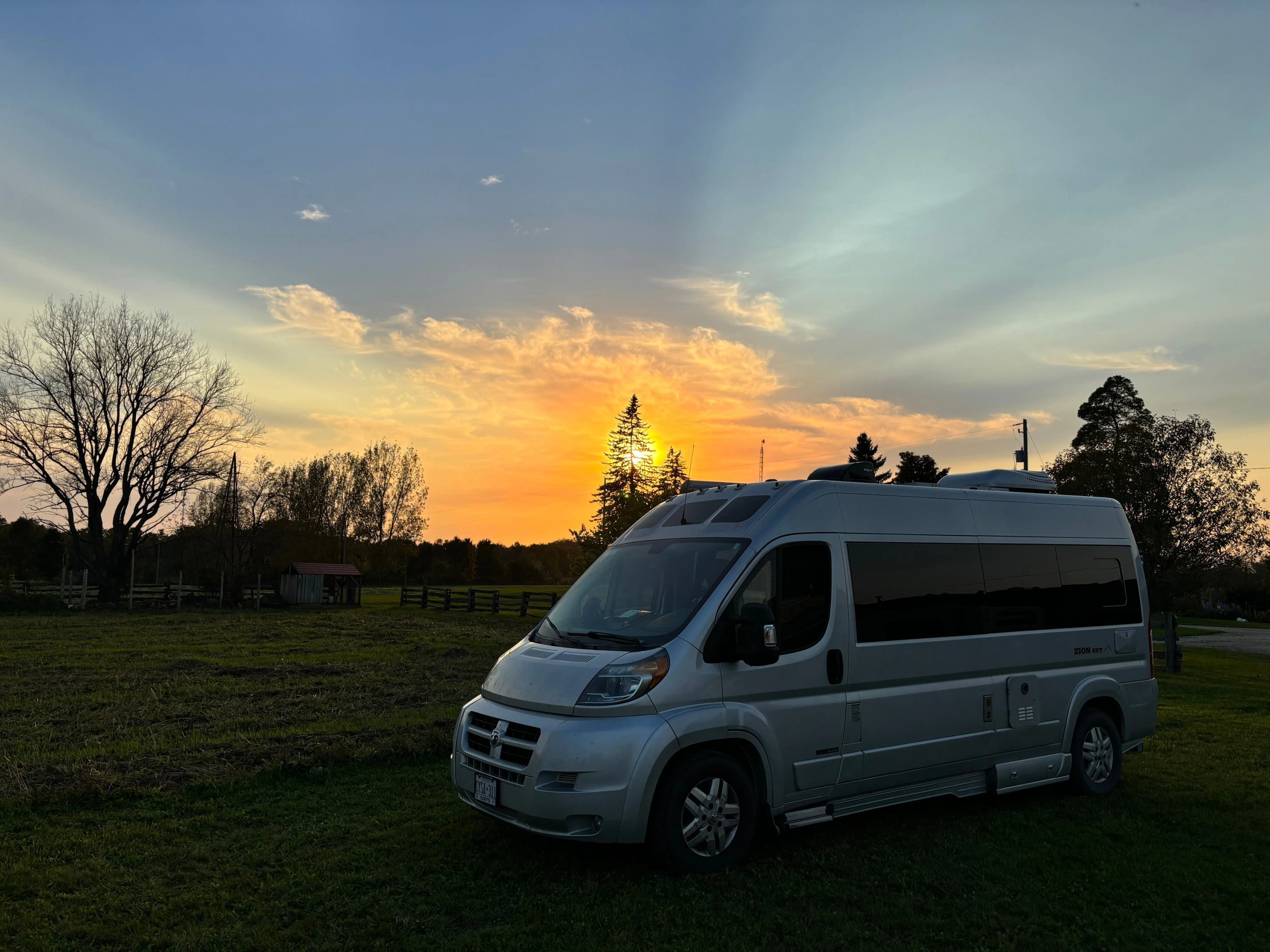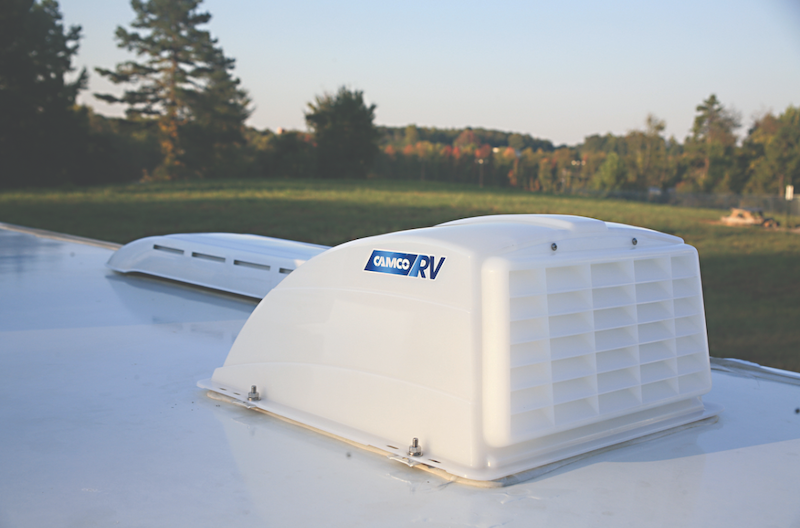Winter Driving Tips
As the year winds down, winter weather is ramping up all over North America. While parts of Canada and the “True North” in America have been buried for some time, some areas in North America haven’t experienced any significant snowfall…yet. Those lucky enough to not yet see snow still have time to prepare for driving through winter weather. Many drivers are experienced when driving their passenger vehicle through the snow, but what about an RV? Here, we’ll cover some of the best tips from real RVers to keep you safe on the roads this winter.
General Tips for Any Vehicle
No matter what type of vehicle you may be driving this winter, these same basic inclement weather rules still apply, from the largest motorhome to the tiniest Mini Cooper.
Check the Forecast
If at all possible, don’t drive during inclement weather at all. Avoiding the snow, ice, and sleet all-together is the number one tip for winter driving safety. If you can check the forecast ahead of time, you can plan your journey around avoiding winter storms, whether that means leaving a day or two earlier, or staying a few extra nights.
Know Your Vehicle
If you need to be driving in winter weather, be sure it’s in a vehicle you’re familiar with. A driver should be experienced with this vehicle in regular conditions before attempting to drive through inclement weather. Knowing how the vehicle brakes, turns, accelerates, and drives are all key for reaching your destination safely.
Tires
Driving any vehicle with outdated or bald tires is dangerous in normal conditions. If you hit a patch of black ice with bad tires, then it could cause you to lose control of your vehicle and crash. Assessing car or truck tires can be easy, but RV tires can be a little trickier. Check out our helpful article on RV tires so you can drive with peace of mind this winter.
Drive Slow
This should go without saying, but it’s essential to drive slowly through inclement weather, where roads can be slippery, more narrow, and crowded with other drivers. It’s important to stay vigilant and drive much slower than normal. Do not accelerate too quickly or brake too fast.
Be Prepared
Be sure to have an emergency kit on-hand in case the worst should happen. Emergency kit items can include a small shovel, flares, snacks, a flashlight, a phone power bank, jumper cables, and more. Just before hitting the road, be sure you have water for yourself and any passengers as well. Looking to put together an emergency kit for your RV? Check out our helpful article to allow you to feel more prepared.
Use Caution and Your Best Judgment
At the end of the day, just use your best judgment, and be cautious. Drive carefully, pull over if you feel unsafe, and take it slow! Never drive if you feel worried or unsure about the road conditions.
Driveable RVs
A driveable RV is arguably one of the most intimidating vehicles to drive during a winter storm, next to a semi truck. Read on for some tips on driving your motorhome carefully through inclement weather.
Space, Space, Space!
This is an important note even when driving during the summer, but it is especially applicable in slick conditions. Give yourself more room between both you and the car in front of you, so that you can come to a stop as safely as possible. Large motorhomes especially need time to come to a stop due to their weight. Slamming on the brakes can easily lead to a spin-out or accident.
Do Not Drive on Unplowed or Unsalted Roads
Despite how large the tires on your RV are, do not drive during unsafe road conditions. Unsalted roads or driving on snow can be extremely dangerous. Losing control of a motorhome can be a fatal mistake, so please drive with extreme caution. Unplowed or poorly plowed roads can also be more narrow than cleared roads. Take this into account, and drive carefully.
Towable RVs
A towable RV may seem like the easiest to drive. While that can be true, this doesn’t allow for careless driving in the snow. Even driving your truck through a winter storm should be handled with caution, especially while towing.
Watch Your Turns
It can be easy to cut a corner too closely and risk toppling over your trailer. Poorly plowed roads can also create more narrow roads, impacting the angle at which you are turning. Be sure to take all turns slowly and carefully since you never know where a patch of black ice may be lurking.
Be Aware of Your Load
When loading your RV, be sure to evenly disperse the weight to help reduce trailer sway. This can also help when going around turns and braking to prevent fishtailing. Use four-wheel-drive if your vehicle is equipped with it, and drive safely!
Driving through winter weather can seem treacherous. While it should be taken seriously, if you follow these tips, it can help you get to your destination as safely as possible.
Do you have any other tips to add? Do you have any RV winter weather driving stories? Tell us about it in the comments below!
Learn More About Boondockers Welcome
We promise not to spam you!







Driving through winter weather can seem treacherous. While it should be taken seriously, if you follow these tips, it can help you get to your destination as safely as possible. But you can also take the time to educate yourself, Karz Auto Insurance Guidelines and insurance agency product reviews, and, of course, the fine print on any policy you’re considering. And don’t discount the RV community as a resource. Talk with other, experienced RV enthusiasts or join an online RV discussion board. Take advantage of the collective wisdom of others who share your passion and lifestyle.